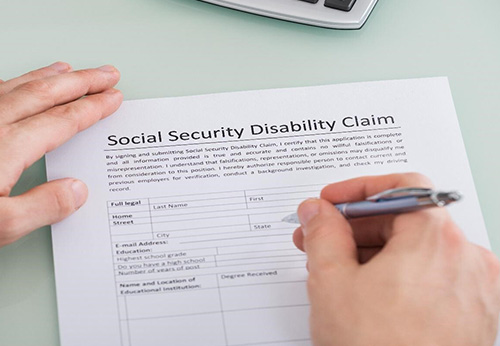The SSD Claims Application Process And Timeline

After The Initial Application
When you submit your initial application, while there is no required time by law for a response from Social Security, my experience is that it can take between 120 to 150 days until you are given notice of the decision. Since the pandemic, the timeframe is often longer, but these decisions “should” arrive within four to six months.
Because even well-prepared applications are denied at their first decision, it’s also helpful to know the timeline of an appeal.
You May Be Denied, So You Will File An Appeal
If your case is denied, you have 60 days to file a request for reconsideration. To do this, you will complete all the necessary paperwork for the reconsideration and provide additional medical evidence about your continued treatment throughout the process.
After filing a request for reconsideration, it can take another four to six months to receive a second decision. While some claims are approved at this point, it’s not uncommon for cases to have to go through a third stage: Hearing before an administrative law judge.
The Final Stage: Preparing For The Hearing
When you request a hearing, your case is sent to the hearings operations office. Here, the decision that was issued by the social security administration is reviewed by an administrative law judge who works independently from the social security administration.
In the hearing you will testify to your symptoms associated with all of your physical and mental impairments. I prepare my clients for them to tailor their testimony to be as consistent with their reported symptoms in their medical records, and this helps show all of these symptoms are consistent with the diagnosis that the doctors have given you.
Through each step of the hearing, you go through this “testimonial evidence” and describe the symptoms in a specific way – tying each of your symptoms to the limitations it causes you to experience. These limitations are talked about as being exertional, which refers to physical limitations, or non-exertional which refers to mental limitations. The more limitations you have, the better chance you have of prevailing.
Sometimes a treating medical provider, will be willing to take an extra step beyond just providing their treatment notes and complete a Medical Source Statement which outlines the limitations the treating doctor or other qualified medical provider associates you have from the symptoms caused by her impairments. The more the medical providers opinion is supported by their own treatment records and consistent with other medical evidence, the more persuasive and ultimately helpful they will be to winning the case.
You may be reading this and feel overwhelmed – it’s natural. The hearing for a disability claims case can be a lot to handle on your own. This is why it’s so crucial to have an experienced attorney on your side. This way, you don’t have to wonder or worry about what comes next – you can rest easy knowing that your claim will be handled by someone who knows exactly what you need to do to find the outcome you’re looking for.
What Medical Evidence Is Used To Prove That You Are Disabled?
The evidence that you will need to prove you are disabled can include:
- X-rays;
- MRIs;
- CT Scans;
- Physical examinations;
- Your primary care doctor’s report of your symptoms;
- Referrals to specialists;
- Specialist’s diagnostic testing and examinations;
- Records of any procedures performed by your doctor or a specialist;
- And more…
Everything that you have that can show your claim is valid will be incredibly important in the SSD process.
For example, if you are in a pain management program such as injection therapy, or if you have prescription drug records showing that you’ve tried to deal with your symptoms, you’d want to include that evidence in your claim.
If you have a mental impairment, you’ll want to provide counseling records, any in-patient psychiatric records, and prescription records to support that you have tried to deal with your mental impairments.
Additionally, you will have several forms to fill out regarding the medical evidence in your case, including:
- Activity of daily living forms
- Pain forms
- Other symptom forms
You must provide written documentation as the claimant, but these records can be difficult to keep if you are dealing with a debilitating impairment. So sometimes, it can be helpful to have a third party fill out these forms on your behalf.
Of course, not just anyone can comment on how you’re doing in a way that counts toward your claim. However, it can be incredibly helpful if someone you know is able to help you by keeping a record of your condition, even though (and especially since) you are unable to do so yourself.
If, for example, you suffer from seizures or migraines, you may not be incapacitated all the time. But when these impairments flare up, they can leave you completely down for the count – huddled in a dark room for hours battling pain and nausea. In situations like this, having someone who can support you by documenting the frequency and severity of your condition is incredibly helpful.
For more information on Social Security Disability Law In Arkansas, a free initial consultation is your next best step. Get the information and legal answers you are seeking by calling (866) 253-2226 today.

You Deserve The Best, Get Help Today
(866) 253-2226
